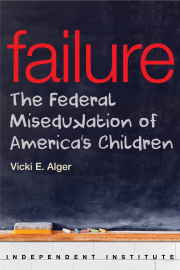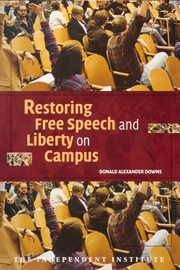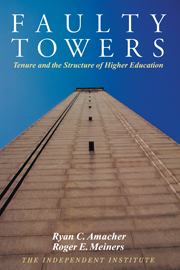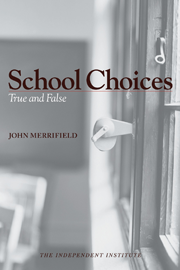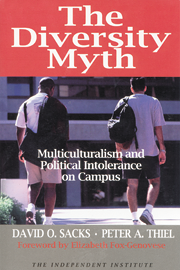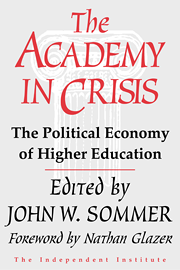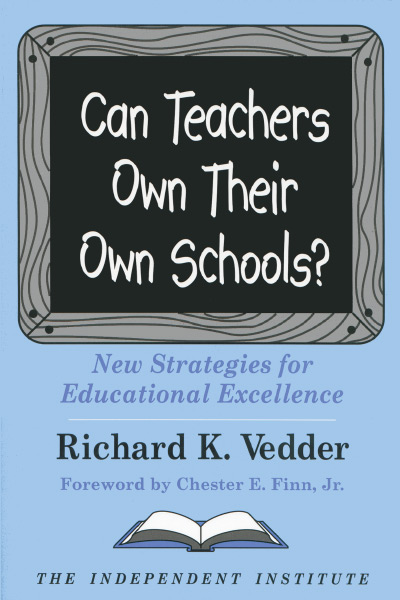
| List Price: | ||
| Price: | $9.70 | |
| Discount: | $3.25 (Save 25%) |
| Formats |
Paperback |
eBook |

| List Price: | ||
| Price: | $9.70 | |
| Discount: | $3.25 (Save 25%) |
| Formats |
Paperback |
eBook |
Overview
Despite more than 15 years of effort, it is widely acknowledged that internal reform of the public schools has produced little if any success. This has led to renewed interest in alternative forms of educational delivery to devolve decision-making through charter schools, public and private voucher plans, contracting out educational services, and home schooling. However, such reforms have largely been resisted by public school interest groups, including teacher unions, state departments of education, colleges of education, and school board and administrator organizations that have fought any but the most benign changes.
Less attention has been given to another option that has been quietly growing in importance: private, for-profit schools. Firms in the private sector are typically more productive and responsive to consumer demands than their public sector counterparts. Historically, for-profit schools have had a good track record and they are increasingly common today. In Can Teachers Own Their Own Schools?, Richard Vedder examines the economics, history, and politics of education and argues that public schools should be privatized. Privatized public schools would benefit from competition, market discipline, and the incentives essential to produce cost-effective, educational quality, and attract the additional funding and expertise needed to revolutionize school systems.
Drawing inspiration from Margaret Thatcher’s privatization of government council housing in England, privatization reforms in Latin America, and the E.S.O.P. (Employee Stock Ownership Plan) movement in the United States, Vedder presents a bold plan in which teachers, administrators and others involved in the educational process would become the owners of schools, acquiring an attractive financial stake in the process. Such privatization reforms could empower those directly involved and affected by school performance and end interest group barriers, paving the way for new, cost-effective means of improving educational outcomes. As a result, schools in which teachers, administrators, and parents have a significant financial stake would foster vibrant school communities with increased parental involvement and the innovation and efficiency essential to produce educational excellence.
Contents
- Chapter 1: Introduction
- Chapter 2: American Education: Poor Outcomes and Declining Efficiency
- Chapter 3: Long-Term Benefits of the For-Profit Approach
- Student Benefits
- Benefits to Taxpayers
- Benefits to Teachers
- Chapter 4: A Historical Perspective on For-Profit Schools
- Chapter 5: For-Profit Education in America Today
- Chapter 6: Illustrating the “ESOP” Approach to Public Education
- Chapter 7: Conclusion
- Index
Praise
“Giving teachers an economic stake in the success of their schools is a terrific idea. Letting teachers (and other school staff) actually own their schools is also very intriguing. Creating stronger, competitive incentives for school success is an important policy emphasis. Richard Vedder’s wide-ranging and inventive study, Can Teachers Own Their Own Schools?, frames several approaches to accomplishing these worthy goals. We should encourage innovation and honest experimentation. And in particular, we should encourage some states or communities to give Vedder's ideas proper field tests. Nobody yet has found a foolproof formula for revitalizing American K-12 education. So let’s be honest and humble enough—and empirical enough—to try a lot of tantalizing approaches. In that spirit, I commend Vedder’s pioneering ideas for your consideration.”
—Chester E. Finn, Jr., former Assistant Secretary, U.S. Department of Education
“Despite the sharp rise in spending on public schooling over the past decade, it was the largely unsubsidized nonpublic sector nonpublic sector of the K-12 education economy that expanded significantly during the period, according to Richard Vedder, senior fellow at The Independent Institute, in a new book, Can Teachers Own Their Own Schools? (The Independent Institute). Vedder suggests for-profit schools owned and operated by teachers and administrators would offer a promising alternative to the present public school system.”
—School Reform News
Author
Richard K. Vedder is Senior Fellow at The Independent Institute, Distinguished Professor of Economics at Ohio University, and author (with L. Gallaway) of Out of Work: Unemployment and Government in Twentieth-Century America.



